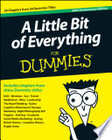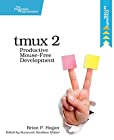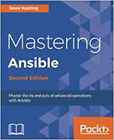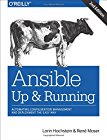
Once, when I picked up a book from the local library, the librarian asked to tell her what I thought about the book when I would bring it back. Well, why not write a few lines about all the books I read so everybody could see what I thought about it? I'm often also happy to have friends recommend a certain book or tell me this and that is not really worth reading. I won't comment about the tons of books I have read so far, but about books I read from now on.
| highly recommended | sehr empfohlen | |
| good reading | gutes lesematerial | |
| average | durchschnittlich | |
| not too interesting | nicht allzu interessant | |
| recommended not to read it | empfehlung das buch nicht zu lesen |













































































































































































































































































































 |
|
|---|---|
| title | How to Win Friends & Influence People |
| author | Dale Carnegie |
| ISBN-10 | 0-671-72365-0 |
| ISBN-13 | 978-0-671-72365-1 |
| ASIN | |
| rating | |
| date | 2009-Apr-09 |
Many of these self improvement books are completely exaggerating and talking about methods which are simply not applicable. This is, I feel, one of the books which actually are on track and give advice which is useful.
There are three parts in this book: how to make people like you, how to win people to your way of thinking and how to change people without arousing resentment. Actually, most of the people will actually know about most of the things the book suggests, but often we "know but do not realize". Ever so often I had to say to myself "Well, that's actually the way to do it and if I think of it, I somehow knew it." But these things have never before been laid out in front of me so openly. Some of the principles described in the book I already used consciously, some of them unconsciously and some where new ideas to me.
The book is not a manual giving concrete steps to take or phrases to use, but rather a guide to show you the direction to follow. The steps used to walk into the given direction must be found and taken by yourself, as they are very much dependent on the situation at hand. But there are numerous examples of how people applied the principles in certain situations. Actually most of the book consists of such examples and what the result was. Sure, Dale Carnegie uses positive examples with incredible results for illustration in his book, basically he shows the tip of the iceberg. The reader must realize that not every time one of these principles is being applied such a huge gain can result. So don't expect immediate radical changes once you start following the advice in the book, but I'm sure the general idea is correct and will yield results finally.







































